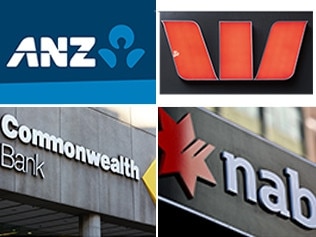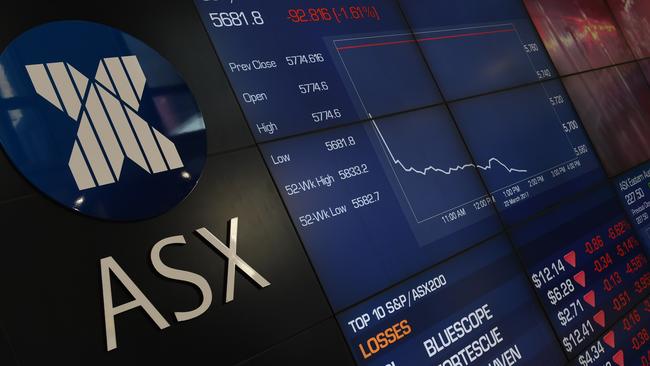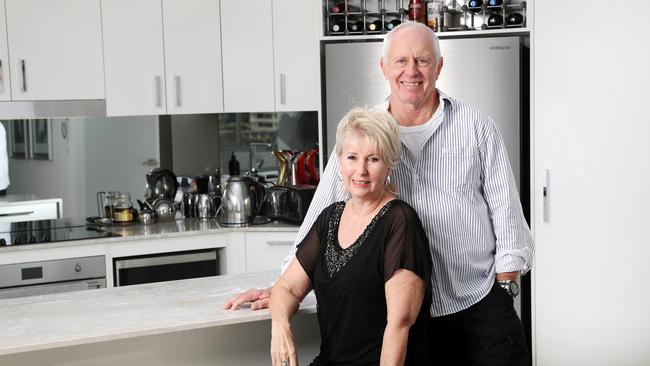The Australian sharemarket has been performing well so when is the right time to trade stocks?
The Australian sharemarket is close to reaching a record high but rates are at a record low. Experts explain what investors need to do. SEE THE BEST & WORST STOCKS AROUND
Saver HQ
Don't miss out on the headlines from Saver HQ. Followed categories will be added to My News.
The Australian sharemarket continues to flirt with hitting a record high leaving many investors unsure about whether now is the time to buy or sell their investments.
The ASX200 is trading at close to unprecedented levels and recently hit 11.5 year highs, giving investors plenty to talk about.
But in stark contradiction the Australian economy is struggling and Reserve Bank of Australia governor Philip Lowe has cut the cash rate twice in two months to a record low of 1 per cent.
This is in a desperate move to try and stimulate the economy.
Since the beginning of the year many investors’ portfolios have fattened including those with super funds — they have been able to watch their balances steadily climb.
But for older Australians who suffered dramatic losses after the global financial crisis over a decade ago, some are still licking their wounds.
It’s taken a long time for the sharemarket to rebound to within a striking distance of previous highs.
So is now the best time to invest your money in shares?
CAN SHARES STILL CLIMB?
Automated investment advice platform Six Park’s director of business development, Ted Richards said despite Australian shares generally performing well in 2019 the climbs aren’t over just yet.
“Just because something is high doesn’t mean it can’t go higher,” he said.
“Market highs can go higher, it doesn’t always work that highs lead to corrections.”
But Mr Richards said picking the right stock at the right time is almost impossible to do, even for the experts.

Robo adviser Stockspot’s founder Chris Brycki said investors need not worry about market commentators suggesting a bubble would soon burst in the stock market.
“Like broken clocks they are usually wrong and more likely to harm your investing than help it,” he said.
“Our advice to clients is to pay no attention to their predictions.
“Instead make sure you’re well diversified across different assets, keep your costs low and accept that the share market can go up or down over the short term.”
MORE MONEY NEWS:
The money habits you must learn
Top money lessons for adult kids
How you can save $4700 on your mortgage
GETTING STARTED
CommSec’s general manager of digital and customer experience Soraya Alali said more than half of their investors opening new accounts are Millennials aged under 35.
“They want to start early and this has driven the growth we have seen,” she said.
“You need a minimum of $500 to invest in the market and what we find with Millennials they tend to invest on average about $1000.”
She said younger investors also often invest in exchange-traded funds (ETF) and “have three times more ETFs in their portfolios than other investors”.
An exchange-traded fund is a basket of securities that tracks an index or a sector and is usually done at a low cost.
They can also be traded on the stock market like shares and by using an online brokerage account such as CommSec, NABtrade or ANZ Share Investing sites or a stockbroker.

RESEARCH
Ms Alali said before any investor purchases shares they should “do you research”.
“Make sure you are comfortable with knowing what company you are buying into,” she said.
“There is risk associated with investing … and with the amount of money you are willing to invest, be comfortable with how much money you are willing to gain as well as lose, know your risk appetite.”
There’s plenty of information online including the Australian Securities and Investments Commission’s MoneySmart websites which holds investors’ hands over what they need to know before they start dabbling in shares.
“Invest small amounts and build your portfolio over time and use the tools and research that are at your disposal,” Ms Alali said.
She said that helps build confidence and helps make good decisions in the long term.

RIDING THE HIGHS AND LOWS
Glenda and Trevor Norman, both now 64, retired at age 57, have a self-managed super fund and also used fund managers to help invest their money over many companies.
Mrs Norman said despite the sharemarket pushing to all-time highs “it’s volatile”.
“It can’t keep going the way it’s going, but we have ridden out over time some downturns,” she said.
She said when shares did fall they pulled out their money and put it back in the back but wished she had not done this.

“When we did get back we missed the up so we learned even though it does go down it rebounds pretty quickly,” Mrs Norman said.
The pair said they weren’t too concerned about Labor’s plan to dump franking credits ahead of May’s election, which threatened to hit many retirees.
Labor leader Anthony Albanese recently indicated his party might dump the policy.
Franking credits are a rebate some shareholders receive from the government at tax time, but under the Morrison government they will remain untouched.
DIVIDENDS AND STOCK PRICES
Investors can secure themselves some nice income through dividend or in simple terms a portion of the company’s earnings that is distributed to shareholders.
Companies that pay dividends usually do so biannually.
Investors often view this a dividend yield, which is the dividend in terms of a per cent of the current stock price.
But be mindful dividends and share prices often move in different directions — when share prices climb dividend yields drop.


